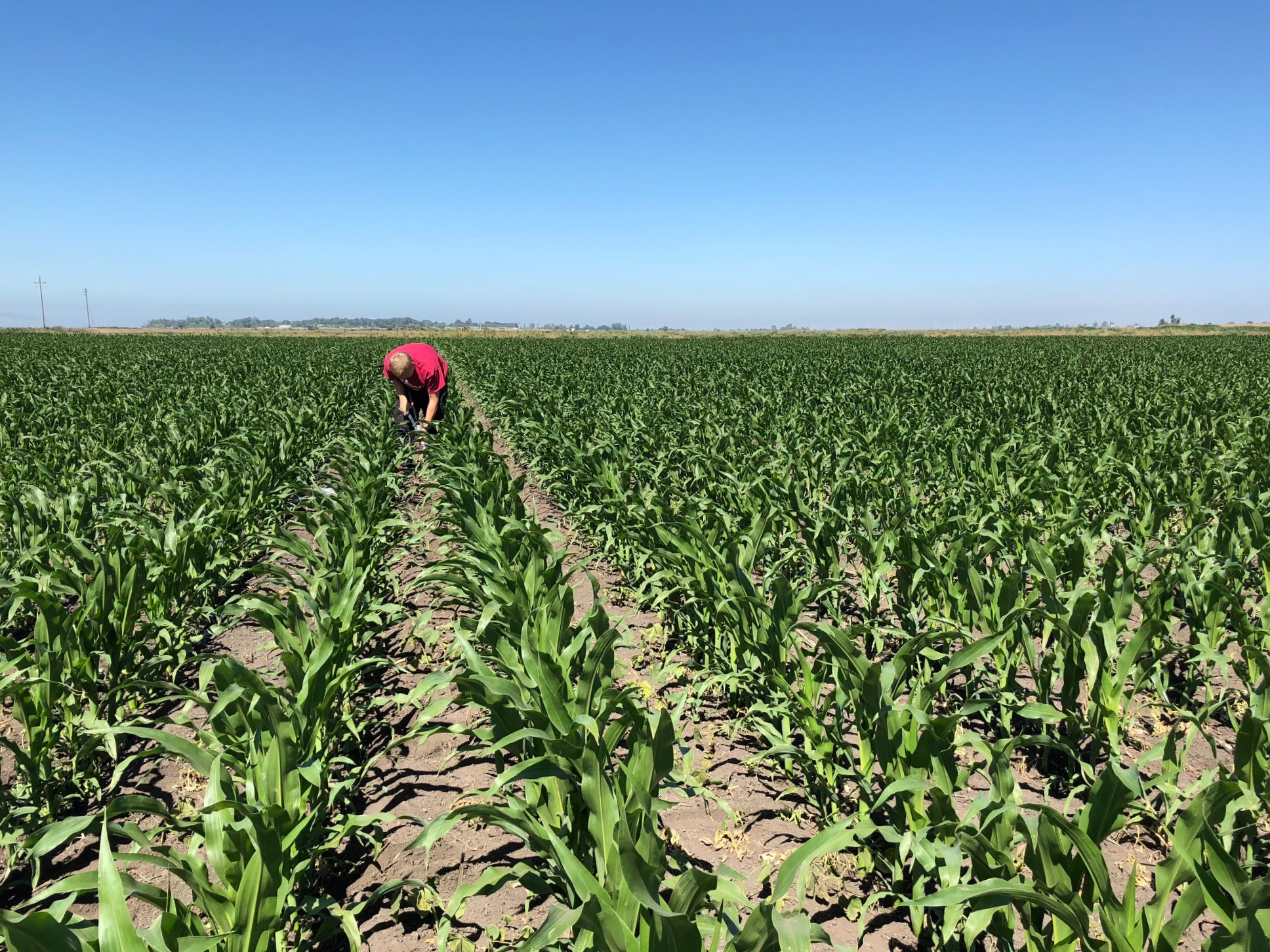
Existing agricultural land management practices and currently managed land can help slow global warming. (Credit: Heather Dang)
This article is excerpted from a UC Berkeley news release. Read the full article here.
Low-tech ways of improving soil quality on farms and rangelands worldwide could pull significant amounts of carbon out of the atmosphere and slow the pace of climate change, according to a new study by researchers at UC Berkeley and Lawrence Berkeley National Laboratory (Berkeley Lab).
The researchers found that well-established agricultural management practices such as planting cover crops, optimizing grazing and sowing legumes on rangelands, if instituted globally, could capture enough carbon from the atmosphere and store it in the soil to make a significant contribution to international global warming targets.
Their initial aim was to determine if such practices could reduce global temperatures at least 0.1 degree Celsius (0.18 degrees Fahrenheit). When combined with aggressive carbon emission reductions – the best scenario for limiting warming from climate change – the study found that improved agricultural management could reduce global temperatures 0.26 degrees Celsius – nearly half a degree Fahrenheit – by 2100.
The study authors were Whendee Silver, a professor of environmental science, policy and management at UC Berkeley; Allegra Mayer, a UC Berkeley graduate student; Zeke Hausfather of UC Berkeley’s Energy and Resources Group; and Andrew Jones of Berkeley Lab. Their findings were Aug. 29 in the online journal Science Advances.
The researchers used global data on agricultural management approaches that are already known to increase soil carbon storage, along with a climate model that determined the potential impacts on climate if these approaches were widely adopted.